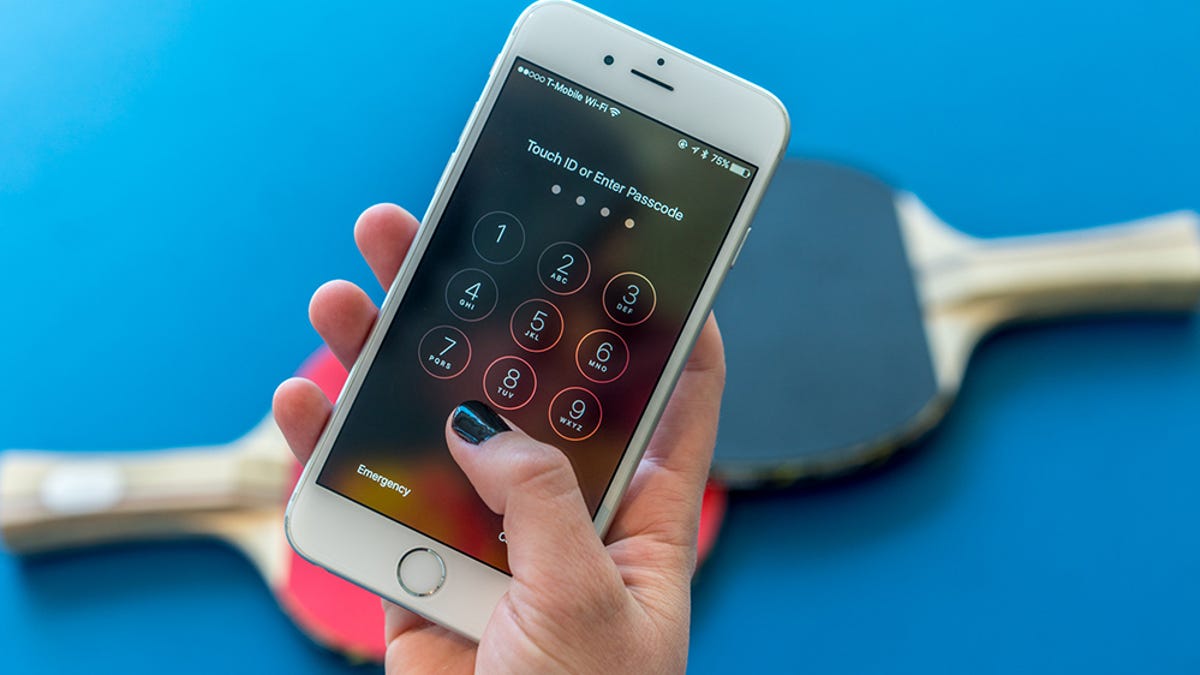11 juiciest arguments made in the Apple vs. FBI iPhone fight
A slew of tech companies throw their weight behind Apple. Here's the gist of what they're saying.

Apparently, there's nothing that gets people talking like a debate between personal privacy and national security.
A wide range of tech companies this week filed amicus briefs, or court filings that throw their support behind Apple in its legal tussle with the FBI. The iPhone maker's supporters include Google, Microsoft, Twitter, Airbnb, AT&T and several trade groups such as the Consumer Technology Association.
Apple General Counsel Bruce Sewell fields questions from Congress over encryption.
Their show of support underscores concern the wider tech industry has about the FBI ordering Apple to create a "back door" -- an intentional security weak spot -- in a smartphone used by millions of people around the world.
In the amicus briefs, companies said they worry back doors would weaken their ability to protect their customers' information and put people at heightened risk of being hacked. The FBI argues this is an isolated incident involving a single iPhone 5C used by one of the terrorists involved with the December massacre in San Bernardino, California, and is necessary to keep Americans safe from future attacks.
Apple has compiled the briefs here. We picked out the highlights so you don't have to pore through them.
From Amazon, Box, Cisco, Dropbox, Evernote, Facebook, Google, Microsoft, Mozilla, Nest, Pinterest, Slack, Snapchat, WhatsApp and Yahoo:
Outdated rules. "The government seeks a dramatic extension of New York Telephone (a 1977 Supreme Court case) to cover ever-evolving technologies...It is dangerous to extend that limited endorsement of judicial power over third parties to situations the Supreme Court never could have envisioned."
Not just one hack. "The government's motion reassures the court and the public that the request here is a one-time-only hack. But there are already strong indications that law enforcement will ask for broad authority under the All Writs Act on facts far different from the terrorism investigation at hand."
A most personal device. "Cell phones are the way we organize and remember the things that are important to us; they are, in a very real way, an extension of our memories. And as a result, to access someone's cell phone is to access their innermost thoughts and their most private affairs."
From Airbnb, Atlassian, Automattic, CloudFlare, eBay, GitHub, Kickstarter, LinkedIn, Mapbox, Medium, Meetup, Reddit, Square, Squarespace, Twilio, Twitter and Wickr:
Dangerous precedent. "The government's demand here, at its core, is unbound by any legal limits. It would set a dangerous precedent, in which the government could sidestep established legal procedures authorized by thorough, nuanced statutes to obtain users' data in ways not contemplated by lawmakers."
More important than ever. "The unprecedented scale of digital information used, stored and communicated on the Internet means that 'privacy,' which 'has been at the heart of our democracy from its inception,' is "needed now more than ever."
From the BSA/Software Alliance, the Consumer Technology Association, the Information Technology Industry Council and TechNet:
Not just phones. "The target of the government's request in this case is Apple, but the government's theory would just as easily extend to any third-party developer that has as one of its functions collecting and storing personal information about the device's owner. The authority sought by the government would therefore extend not only to phones, laptop computers and tablets, but also to automobiles that store information regarding location and times of use; insulin pumps that store information about blood sugar levels; and the myriad other devices that collect and store personal information."
From AT&T:
Leave it to Congress. "We need a legal regime that responds to these technological changes through fair, uniform procedures that govern when and how the government may compel any private company to provide access to customer information. Congress is the right body to create such a comprehensive regime addressing all relevant considerations. Indeed, only Congress can do so."
From Intel:
It's not just Apple. "Given the scope of Intel's products and services and its focus on security, it is likely that a ruling in the government's favor on its demand against Apple would lead 13 to similar demands against Intel and other technology companies."
From the Electronic Frontier Foundation and 46 technologies, researchers and cryptographers:
Conflict of expression. "The Order is unconstitutional because it compels Apple to express itself in conflict with its stated beliefs. The Order forces Apple to say something it does not want to say and that it believes is 'dangerous.' It then forces Apple to endorse code it does not want to endorse and thereby undermine the trust it has established in its digital signature."
Not all of filings supported Apple. Here are a few in support the FBI's efforts to open up the terrorist's iPhone 5C.
From Mark Senfeur, whose son was among those killed in the attack:
Preventing another attack. "Recovery of information from the iPhone in question may not lead to anything new. But, what if there is evidence pointing to a third shooter? What if it leads to an unknown terrorist cell?"
From Michael Ramos, district attorney for San Bernardino County:
Cyber pathogen? "The seized iPhone may contain evidence that can only be found on the seized phone that it was used as a weapon to introduce a lying dormant cyber pathogen that endangers San Bernardino's infrastructure."

